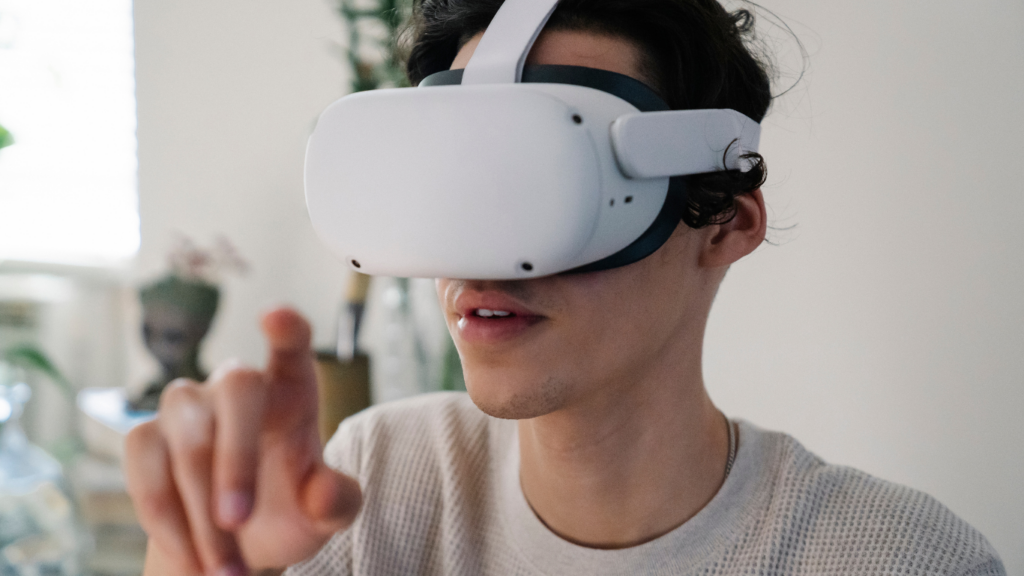The Evolution of Virtual Reality in the Casino Industry
Virtual reality (VR) has significantly revolutionized the casino industry. From early developments to cutting-edge technologies, this section delves into how VR has reshaped gambling.
Early Developments
Early developments in VR casinos began in the late 1990s. Initial experiments lacked the sophistication seen today due to limited technological capabilities and high costs. Companies like SEGA and Nintendo introduced basic VR gaming systems, but they were primarily for arcade experiences rather than integrated casino environments.
Technological Advancements
Technological advancements have drastically improved VR casinos. The development of affordable VR headsets, like Oculus Rift and HTC Vive, has enhanced user experiences.
These devices offer high-resolution displays, advanced tracking systems, and realistic haptic feedback, creating an immersive gambling environment. AI and machine learning have further elevated VR casinos by offering personalized gaming experiences and seamless interactions.
Benefits of VR Casinos
Virtual Reality (VR) casinos offer numerous advantages that enhance the gambling experience, surpassing traditional online platforms in various ways.
Enhanced User Experience
VR casinos provide unparalleled user experiences. Gamblers enjoy interactive elements like:
- live dealers
- real-time chat
with fellow players. The integration of AI and machine learning delivers personalized gaming suggestions based on individual preferences. VR headsets like Oculus Rift and HTC Vive contribute to realistic sensory feedback, making each gambling session more engaging and immersive.
Realistic Gaming Environment
VR casinos simulate real-world casino environments. Gamblers navigate 3D spaces resembling luxurious casinos in Las Vegas or Macau, complete with ambient sounds and detailed graphics.
Realistic animations and physics add authenticity to games like poker, blackjack, and roulette, replicating the feel of physical cards and chips. These elements blur the line between digital and physical gambling, providing a truly immersive experience.
Safety and Convenience
VR casinos offer a safer and more convenient gambling option. Players gamble from the safety of their homes, eliminating risks associated with traveling to physical casinos.
Enhanced digital security measures protect users’ data and transactions. The convenience of 24/7 accessibility allows players to engage in gambling activities at their preferred time, without the need to adhere to casino operating hours.
Popular VR Casino Games

Virtual reality has revolutionized the gambling landscape, offering a variety of engaging games. Below are some of the most popular VR casino games.
Poker
Poker in VR casinos offers a realistic table experience. Players can interact with each other, read body language, and even bluff. VR technology enhances the game with immersive environments, making it feel like playing in a high-stakes casino. Popular platforms like PokerStars VR provide diverse game modes, tournaments, and customizable avatars.
Slot Machines
VR slot machines transform the traditional experience. Players can walk up to different machines, pull levers, and watch reels spin in 3D environments. Themes range from classic fruit machines to adventure and movie-based slots. Betsoft’s Max Quest: Wrath of Ra is a notable example, merging slot mechanics with interactive shooter gameplay, providing an engaging twist.
Roulette
VR roulette offers a captivating social experience. Players gather around a virtual table, place bets, and watch a live-dealer spin the wheel. Realistic physics and visuals enhance the authenticity, making each spin thrilling. Evolution Gaming’s VR Roulette features high-resolution graphics and interactive elements, ensuring a premium experience for each player.
Challenges and Limitations
While VR casinos offer incredible experiences, several challenges and limitations persist.
High Costs
VR equipment carries significant costs. High-end headsets such as the Oculus Rift and HTC Vive retail between $400 and $800. Additionally, powerful PCs are required to run VR applications smoothly, which can add an extra $1,000 or more. Consequently, the high initial investment limits access for many users.
Technical Issues
Users often encounter technical issues with VR setups. Frequent problems include connectivity issues, software bugs, and compatibility challenges with other devices.
The need for high-speed internet connections is another limiting factor. Users without reliable internet connections can’t fully enjoy VR casino services. For instance, lag or disconnections during gameplay can disrupt the immersive experience.
Regulatory Concerns
- The regulatory environment for VR casinos remains complex.
- Most jurisdictions haven’t updated their gambling regulations to account for VR technology.
- This creates legal ambiguities that both casinos and users must navigate.
- Licensing and compliance requirements vary significantly across regions.
- Some countries may classify VR casinos differently from traditional online casinos, leading to potential restrictions or additional licensing costs.
The Future of VR Casinos
The VR casino landscape is poised for significant growth. Predictions suggest major advancements and expansions in both technology and user experience.
Market Predictions
Market analyst firm Grand View Research forecasts the VR market size to reach $62.1 billion by 2027. The VR casino segment is expected to capture a noteworthy share of this growth. Increased adoption of 5G technology will enhance connectivity and reduce latency, making immersive gaming experiences more seamless.
Potential Innovations
Developers are exploring several innovations to elevate VR casinos. Haptic feedback suits will provide tactile feedback, replicating the physical sensations of handling cards or slot levers.
AI integration will further customize user experiences, offering tailored game recommendations and dynamic difficulty adjustments based on player behavior. Blockchain technology could also revolutionize payments and ensure fair play through transparent and tamper-proof systems.

